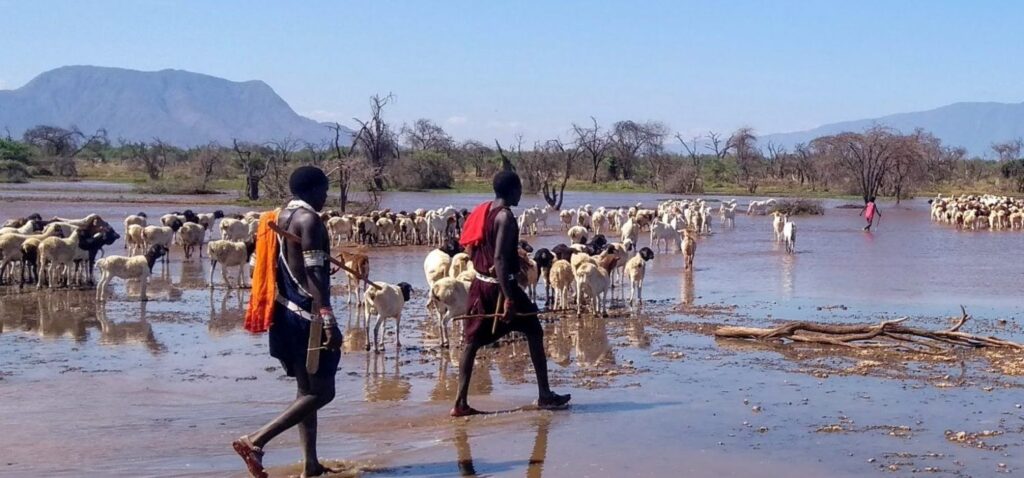Danish development research for a more climate-friendly future
21-10-22

Denmark’s support to development research this year focuses on the green agenda. We have asked Cecilia Gregersen, Special Adviser at the Department for Evaluation, Learning and Quality in the Ministry of Foreign Affairs about the role of development research in shedding light on the challenges of the global climate crisis.
By Pernille Friis and Vibeke Quaade
Denmark has a long tradition of supporting development research carried out in partnerships between Danish universities and universities in the developing and growth countries with which Denmark collaborates. The fight to stop climate change and restore balance to the planet is a central priority in Danish development cooperation and the government’s finance bill for 2022 allocated the full amount for development research to projects working on climate change and the green transition under the framework “Partnerships for sustainable growth and green transition”. All of the development research projects that will be selected in 2022 for up-start in 2023 will thus focus on climate change.
More about Danida’s support to development research
That climate is the unifying theme for the research project applications in 2022 testifies to the fact that research partnerships between Danish universities and the research environment in the global south play an important role in creating the new knowledge, capacity and solutions needed for a more climate-friendly future.
Multifaceted aspects of climate research
The impacts of the climate change crisis are far reaching and there are interactions to be explored and better understood in many different areas, ranging from challenges and impacts in the context of health, mobility, or education, to adaptation efforts, building resilience or the energy transition. This is reflected in the portfolio of Danida-supported development research projects within the climate and green agenda. It includes for example projects such as Himili Pamoja – Gendered Encounters in Climate Change Adaptation in Tanzania, Circular Economy in Bangladesh’s Apparel Industry, Tendering Sustainable Energy Transitionsin South Africa and Governing Climate Mobility in Ethiopia and Ghana. According to Cecilia Gregersen, the spectrum is broad because it is important that research shed light on the challenges of climate change from many different angles. For example, we need to understand the multifaceted and complex connections between the economic, environmental and social dimensions of sustainable development.
Climate change interacts with a number of other development threats such as poverty, political exclusion and displacement. It is therefore important that research helps us gain a deeper understanding of the connections, or interactions, between the pressures on nature and ecosystems and the social impacts of these, she says.
The biodiversity crisis requires more research and knowledge
The biodiversity crisis is another area that requires much more knowledge, according to Cecilia Gregersen. In Denmark’s current strategy for development cooperation The World We Share climate change and the biodiversity crisis are emphasized as being mutually reinforcing phenomena that increase the pressure on the world’s poorest and most vulnerable people.
Danish development cooperation aims to contribute to poverty alleviation for those that are hardest hit by impacts of climate change. Therefore, the Danish support to development continues to support research that explores the interactions between climate change, biodiversity and poverty alleviation, says Cecilia Gregersen.
Bridging the gap between the academia and the public
To help turn research-based knowledge about climate change into action for the benefit of communities, Danida Fellowship Centre promotes the dissemination of research findings and the knowledge exchange between academia and other stakeholder groups. The intention is to bridge the gap between researchers and potential users of the knowledge researchers create, and get for example evidence-based climate focused research findings to relevant political decision-makers, local communities and actors of the private sector in a language and form they can use.
The media plays an important role in creating awareness and paving the way for the uptake of research. With a focus on the African climate crises and the November UN Climate Summit COP27 in Egypt, Danida Fellowship Centre is bringing together 26 climate scientists and 24 journalists from across the African continent in Arusha in Tanzania to create a common platform for collaboration and increased climate research reporting in Africa.
Read more about this initiative Bridging the Gap. Science for the Public. We focus on Climate
Go back to our stories
